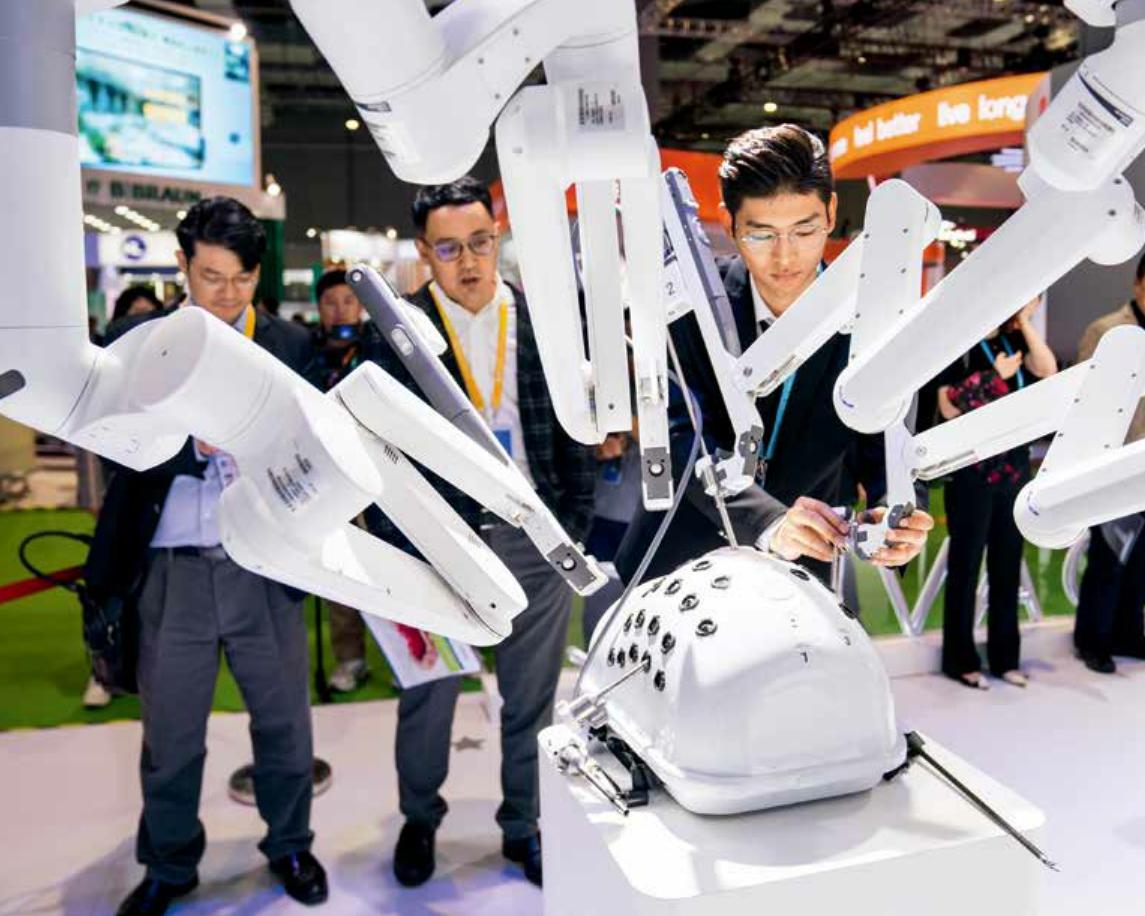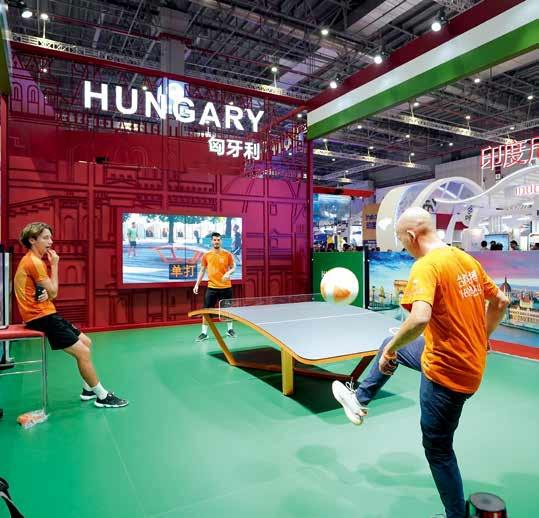CIIE Open Door to the Chinese Market
2019-12-30byNathanBennett
by Nathan Bennett
China has been opening up its economy, but what if foreign companies looking to enter the Chinese market cannot find the door? Recently in Shanghai, that door was lit up for companies to see. The second China International Import Expo (CIIE) ran from November 5 to 10, 2019 and brought together over 3,000 foreign companies, large and small, including over 250 of the Global 500. The CIIE gave foreign companies a platform from which to explore the Chinese market by introducing potential distributors and partners or industrial customers.
Foreign companies may face different challenges moving into the Chinese market. Large companies have to keep up with a web of companies and organizations, not just buyers and sellers, and engage as reliable business community members. Small companies may be the size of a single person, and they have to crack the communication barrier to find a handful of distributors who can make it possible for them to reach Chinese consumers. The CIIE made connections possible for every angle of doing business in China.
Deepen Connection with China
Large companies at the CIIE had lavish and extensive displays, featuring demos of helicopters, engines, refrigerators, fashion, shelves of food products, full demos of audio recording equipment—almost everything you can imagine, and with enough space to show them off. Boeing and Honeywell, featured at the expo, already have long histories in China, and the CIIE was a chance for them to deepen their connections with the country.
Curtis Cartier, an International Communications Specialist for Boeing, described the give-and-take opportunities for Boeing at the expo. On the one hand, he reported that they were able to share about Boeings“latest innovations, new partnerships,” as well as the companys“vision of a more connected future.”On the other hand, they “learned about new technologies and developments across a wide swath of industries.”
The convergence of technological, social, legal, business, manufacturing and other requirements in such advanced products as passenger aircraft requires a well-maintained web of relationships with a broad array of business partners, both direct and indirect. Summarizing Boeings participation in the CIIE, Cartier said, “We hope that our presence at the CIIE demonstrates our overall commitment to China, and to working together with Chinese government departments, customers, suppliers and communities to grow the commercial aviation industry in a way that benefits all.”

Having no previous “direct or indirect trade relations with Chinese companies or customers,” Gironés, like many other suppliers of tea, coffee, and other confectionary goods from around the world, was able in person to establish relationships with partners further into the Chinese market in order to move their products more conveniently, thanks to the CIIE. For many small businesses, it may only take one regular buyer to sustain operations, especially for smaller producers of raw or value-added agricultural products, and distributors help make those products available for retail in Chinas second- and thirdtier cities.
Luxury brands new to the Chinese market are in a situation similar to smaller companies. Andrey Bednyakov from the Russian company Imperial Porcelain Manufactory (IPM) said that participation in the expo was very helpful for IPM, so he thinks they will “definitely take part” in next years expo. As a luxury brand entering the Chinese market, a company like IPM entering a new market requires a different set of connections than a company like Coca-Cola that sells large volumes of cheap products. They have to find partners who understand high-quality goods, who end-users in turn understand to be offering high-quality goods.
IPM, founded in St. Petersburg in 1744, specializes in hand-painted porcelain, and it has been in the Chinese market for about one year. Brand recognition is especially important so that consumers will appreciate the price, and in China they have registered under the Lomonosov trademark. Bednyakov said that IPM representatives attended the first CIIE as visitors, and this year they participated as an exhibitor. The expo helped them establish brand recognition with business-to-business partners like hotels and gifting companies.
Bednyakov reported that it was important to find local partners to produce quality packaging and product photos which appeal to Chinese customers. Shipping from Russia is expensive, so utilizing bulk shipping and then packaging locally for distribution within China was an important point in their logistics. They already have a presence on Chinese online retail platforms and are looking to expand their market share.
Open the Door Wider
The CIIE is hard evidence of Chinas efforts in opening up. As Chinas consumption economy continues to rise, this will create opportunities for global companies to enter the Chinese market and, seeking to develop their own industries back home and improve their product offerings. Producers in developing countries will benefit from increased cash flow as they learn to incorporate value-added processes before finally exporting their products to the Chinese market. The ongoing operations of companies worldwide encourage the development of industries in developing countries on a non-governmental level, even at a grassroots level. However, they have to have someone to call when they pick up the phone to place an order or to make an inquiry. The CIIE allows for the initial contact, paving the way for good relations between buyers and sellers.
The idea of finding the door to enter the Chinese market is a simple metaphor, but the reality involves communication barriers, shipping questions, legal approval, and more. The CIIE makes possible the human relationships that start and sustain the connections which mean a company has found the right door. Knowing that theres someone on the other end of the line to receive a shipment and wire money back makes all the difference in business, and the CIIE is one more step that China has made in opening up its economy to the world.